It is with great honor and immense pleasure that we welcome our distinguished guests to the Interdisciplinary Research Conference on One Health (IRCOH-2025). We are privileged to host a gathering of such esteemed academicians and thought leaders whose presence adds great value to this initiative. We are honored to welcome Prof. Dr. Muhammad Kamran, Prof. Dr. Farooq Anwar, Prof. Dr. Muhammad Zubair Iqbal, Prof. Dr. Aqif Anwar Chaudhry, Prof. Dr. Hassan Sher, Dr. Omer Chaudhary, Prof. Dr. Shazia Bashir, Prof. Dr. Shazia Anjum, Prof. Dr. Uzma Quraishi, Prof. Dr. Muhammad Ramzan, Prof. Dr. Kanwal Ameen (T.I), Prof. Dr. Muhammad Ali Shah, Prof. Dr. Qasir Abbas, Prof. Dr. Ihtesham ur Rehman, Prof. Dr. Muhammad Younus, Prof. Dr. Rauf-i-Azam, Prof. Dr. Talat Naseer Pasha (HI, SI), Prof. Dr. Saeed Buzdar, and Prof. Dr. Zahoor Ul Haq. A very special and respectful welcome to our esteemed Chief Guest, Prof. Dr. Mukhtar Ahmed, whose visionary leadership continues to shape the future of higher education and research in Pakistan.
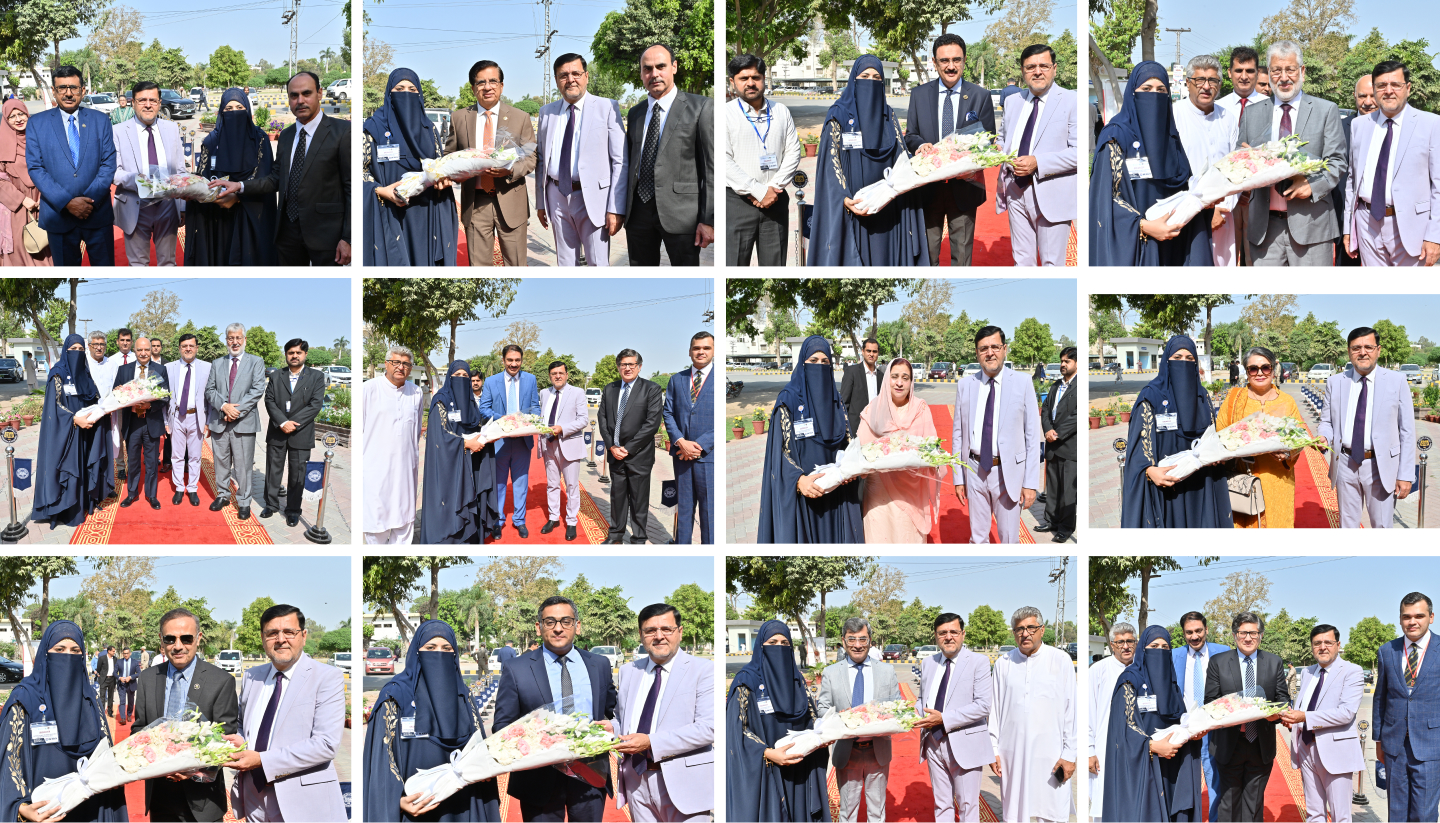
We sincerely thank you all for joining us and look forward to a meaningful exchange of ideas and collaborations under the One Health framework.
The conference was graced by the Chairman of the Higher Education Commission (HEC), Prof. Dr. Mukhtar Ahmed, as the chief guest, and the Vice Chancellor of the University of Sargodha, Prof. Dr. Qaisar Abbas, as host vice chancellor. The conference also welcomed vice chancellors from various public and private sector universities across Pakistan, along with international scholars and delegates, making it a truly global and interdisciplinary gathering. Chairman of the Higher Education Commission (HEC), Prof. Dr. Mukhtar Ahmed, graced the event as chief guest, alongside Vice Chancellor of the University of Sargodha, Prof. Dr. Qaisar Abbas, who hosted the conference. The event was attended by vice chancellors from leading public and private universities across Pakistan and international delegates, underscoring its global and interdisciplinary significance.
Vice Chancellor Prof. Dr. Qaisar Abbas highlighted the university’s commitment to interdisciplinary solutions. “This conference and the newly launched centers reflect our vision to promote innovation and collaboration in addressing real-world health challenges,” he stated. “By connecting experts from medicine, veterinary sciences, agriculture, environment, and social sciences, we aim to deliver sustainable health solutions.”
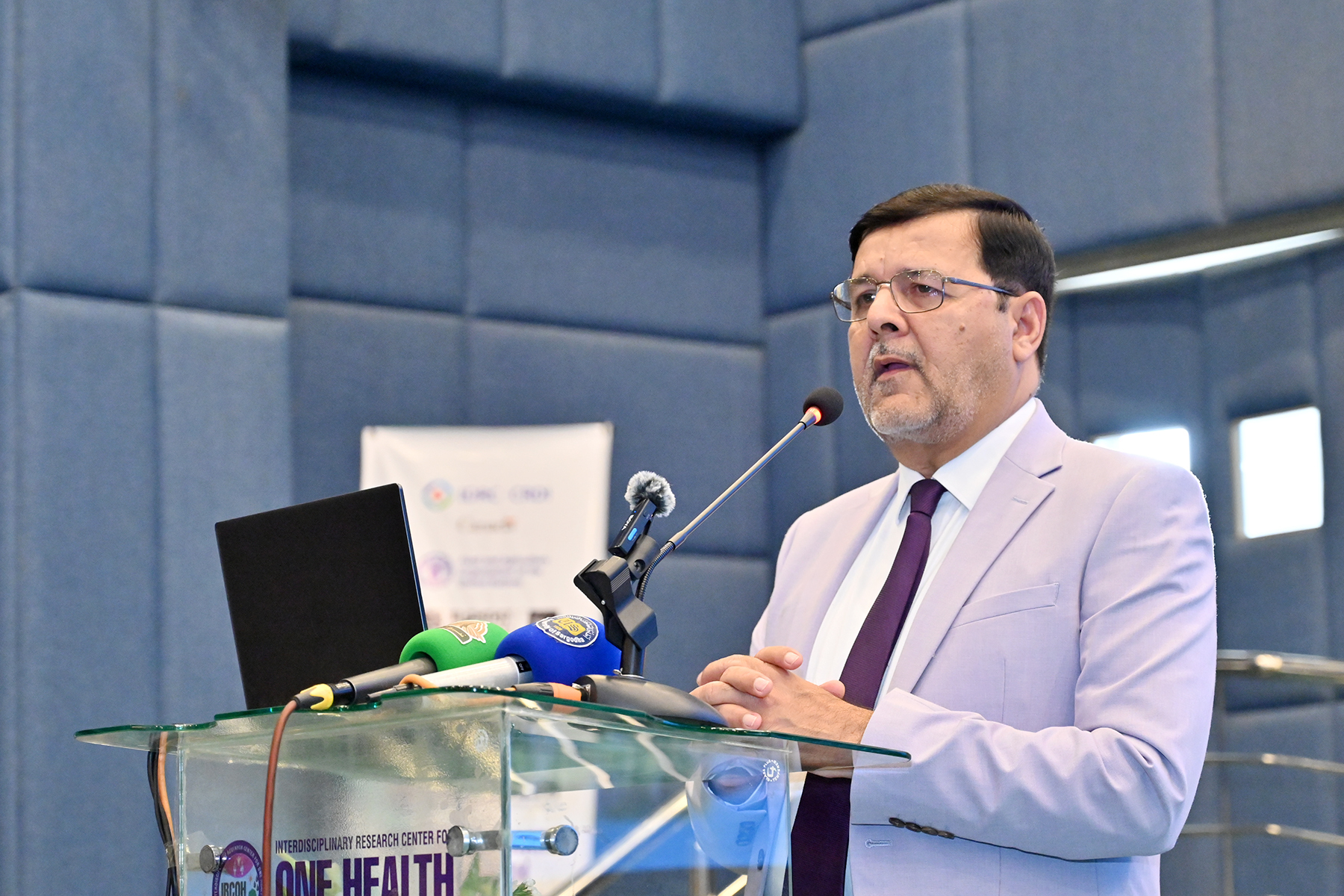
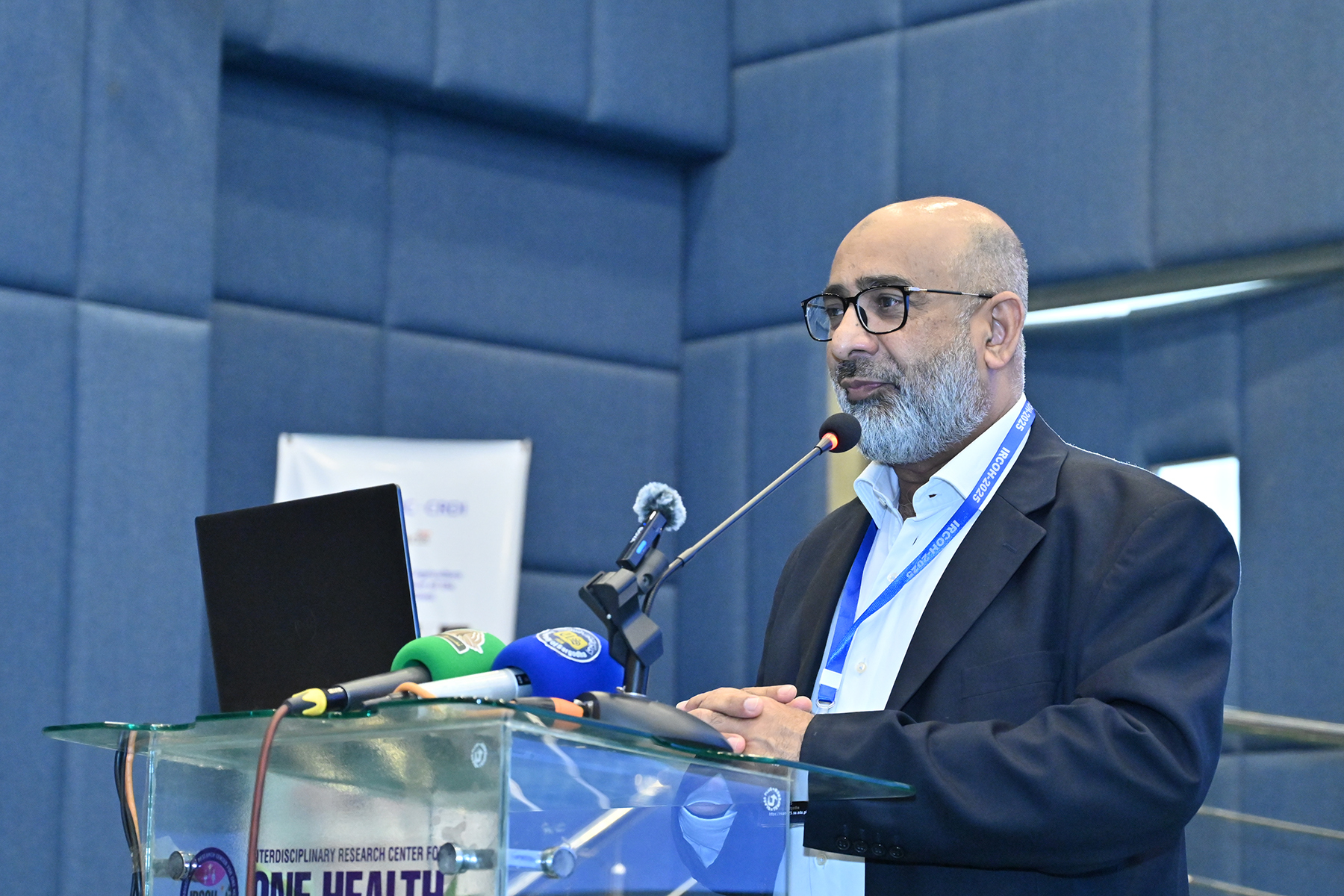
Prof. Dr. Ihtesham Ur Rehman, Director of the newly inaugurated One Health Center, stressed the urgent need for more such centers across Pakistan to strengthen health security through collaborative research.
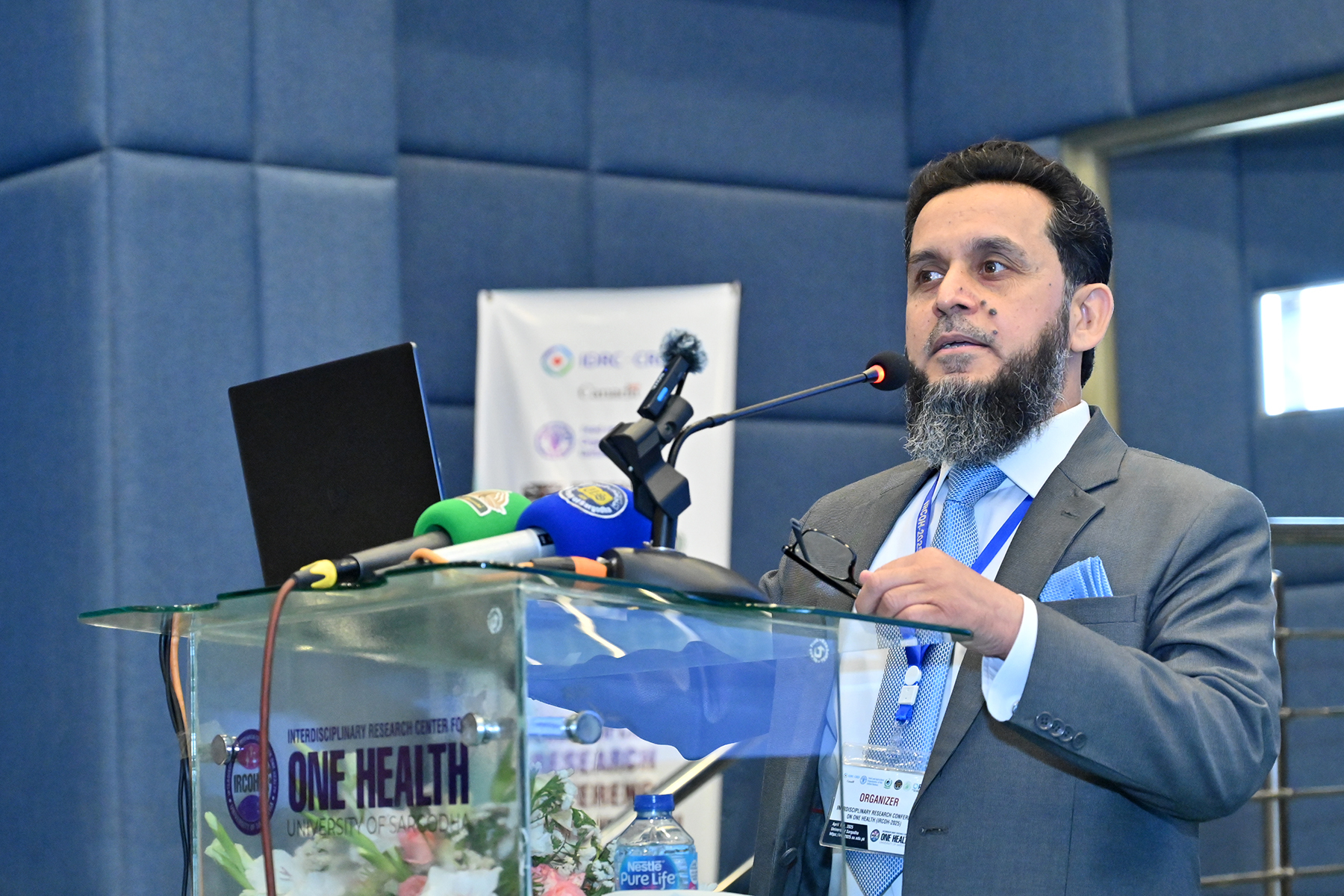
Prof. Dr. Zafar Hayat, Principal, College of Agriculture, provided an overview of the Interdisciplinary Research Center for One Health and the Pakistan One Health University Network, emphasizing their mission to bridge gaps between academic institutions for health research and policymaking.
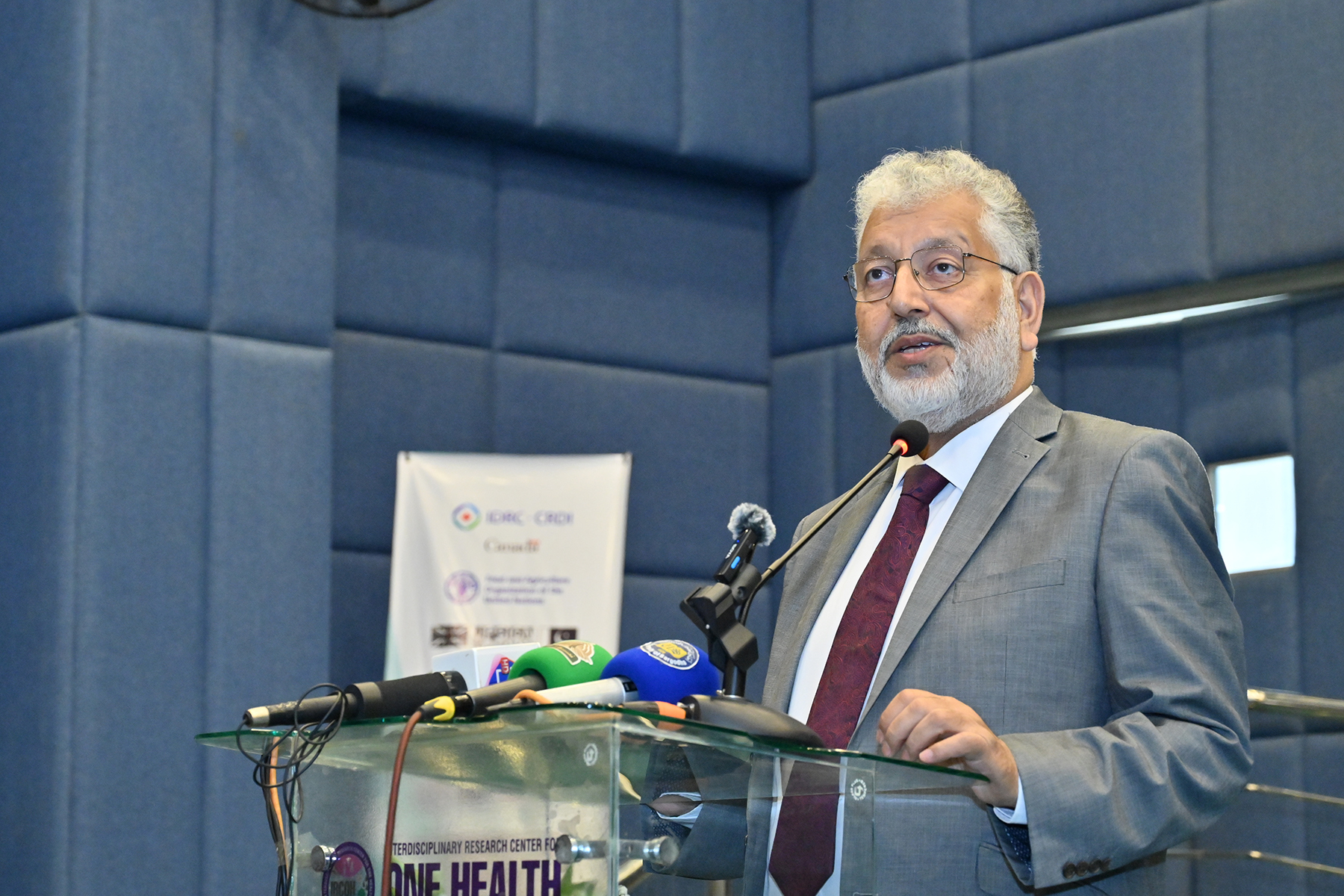
Prof. Dr. Mukhtar Ahmed applauded the university’s leadership in initiating this visionary endeavor. “The One Health approach is vital in today’s world, where health threats like pandemics, climate change, antimicrobial resistance, and zoonotic diseases continue to rise,” he said. “We must embrace interdisciplinary collaboration to ensure a healthier and more resilient future for all.”
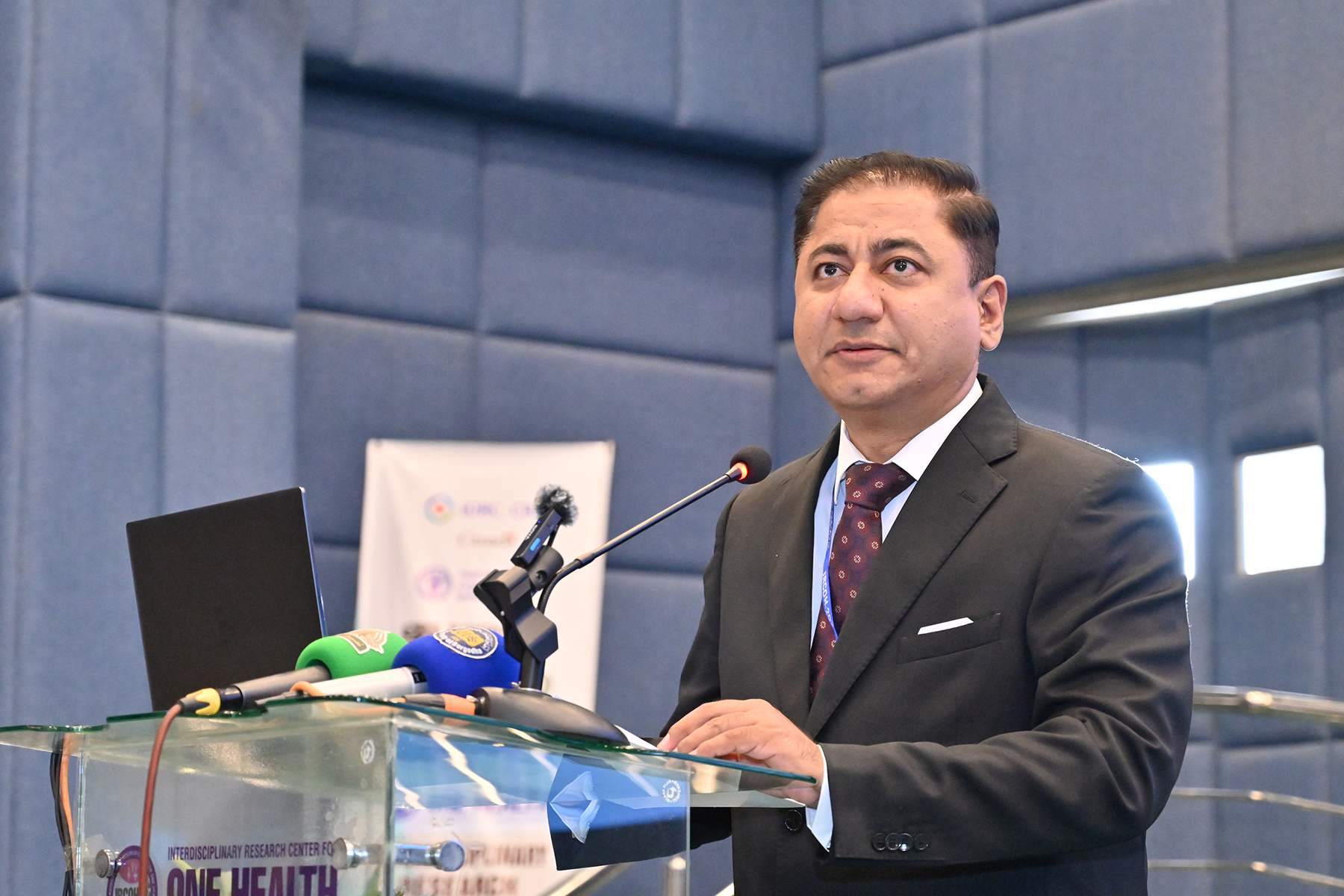
Prof. Dr. Ahmad Raza Bilal, Director of ORIC, underlined the importance of aligning interdisciplinary academic research with societal needs. He extended his gratitude to Chairman HEC and all esteemed guests for their participation and support.
In a pioneering move, the University of Sargodha launched the Interdisciplinary Research Center for One Health, established the Pakistan One Health University Network, and inaugurated the One Health Research Lab under the Belt and Road Initiative, the first of its kind in the country. These initiatives aim to foster collaborative research, diagnostics, surveillance, and policy formulation to tackle health issues at the human-animal-environment interface.
Inauguration of Interdisciplinary Research Center for One Health
Inauguration of One Health Lab under Road and Belt Initiative
Launch of Pakistan One Health University Network
Discover Insights from Leading Voices
Experts share valuable perspectives on the One Health approach, highlighting its significance in fostering a healthier, interconnected world.
Learn More